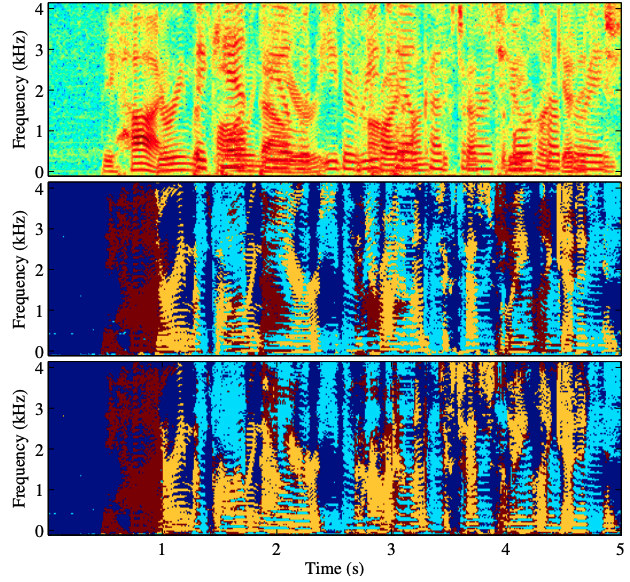Analyzing the impact of speaker localization errors on speech separation for automatic speech recognition
We investigate the effect of speaker localization on the performance of speech recognition systems in a multispeaker, multichannel environment. Given the speaker location information, speech separation is performed in three stages. In the first stage, a simple delay-and-sum (DS) beamformer is used to enhance the signal impinging from the speaker location which is then used to estimate a time-frequency mask corresponding to the localized speaker using a neural network. This mask is used to compute the second order statistics and to derive an adaptive beamformer in the third stage. We generated a multichannel, multispeaker, reverberated, noisy dataset inspired from the well studied WSJ0-2mix and study the performance of the proposed pipeline in terms of the word error rate (WER). An average WER of $29.4$% was achieved using the ground truth localization information and $42.4$% using the localization information estimated via GCC-PHAT. The signal-to-interference ratio (SIR) between the speakers has a higher impact on the ASR performance, to the extent of reducing the WER by $59$% relative for a SIR increase of $15$ dB. By contrast, increasing the spatial distance to $50^\circ$ or more improves the WER by $23$% relative only
PDF Abstract



 Kinect-WSJ
Kinect-WSJ
 WSJ0-2mix
WSJ0-2mix
 CHiME-5
CHiME-5